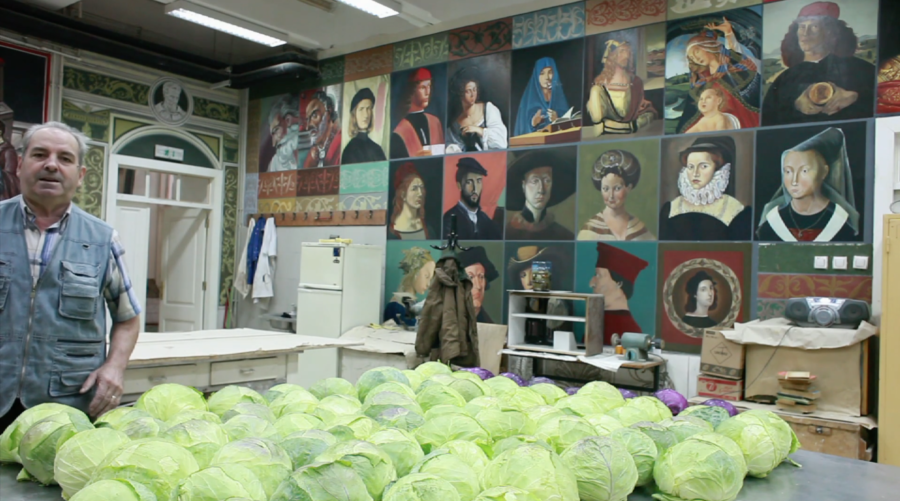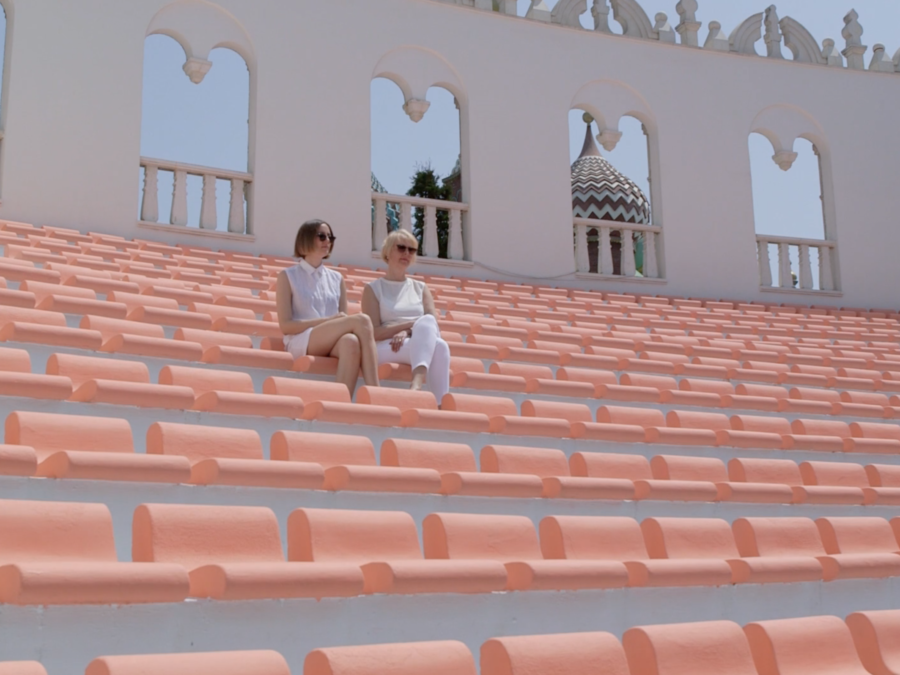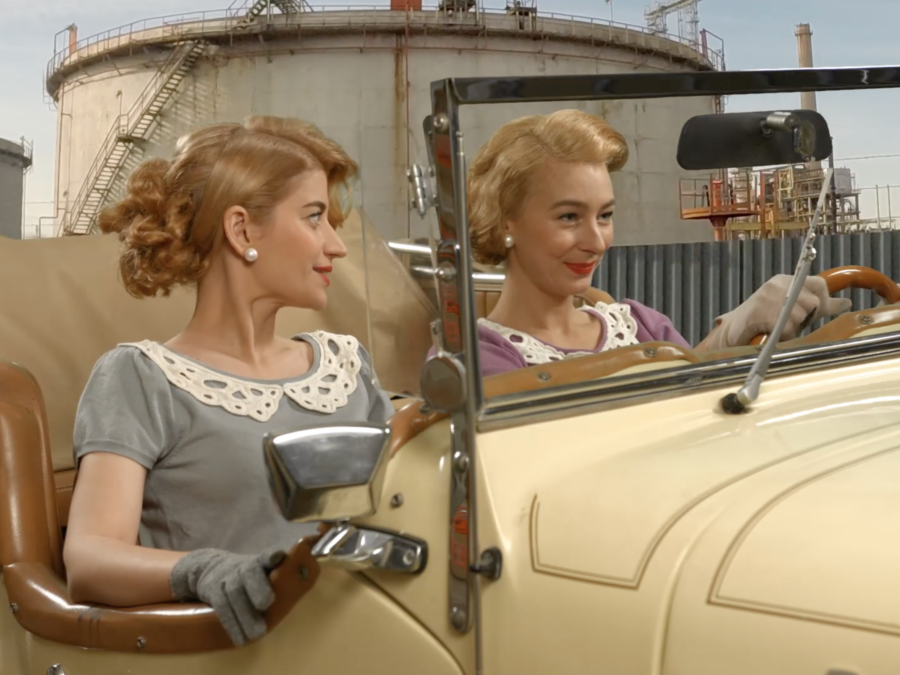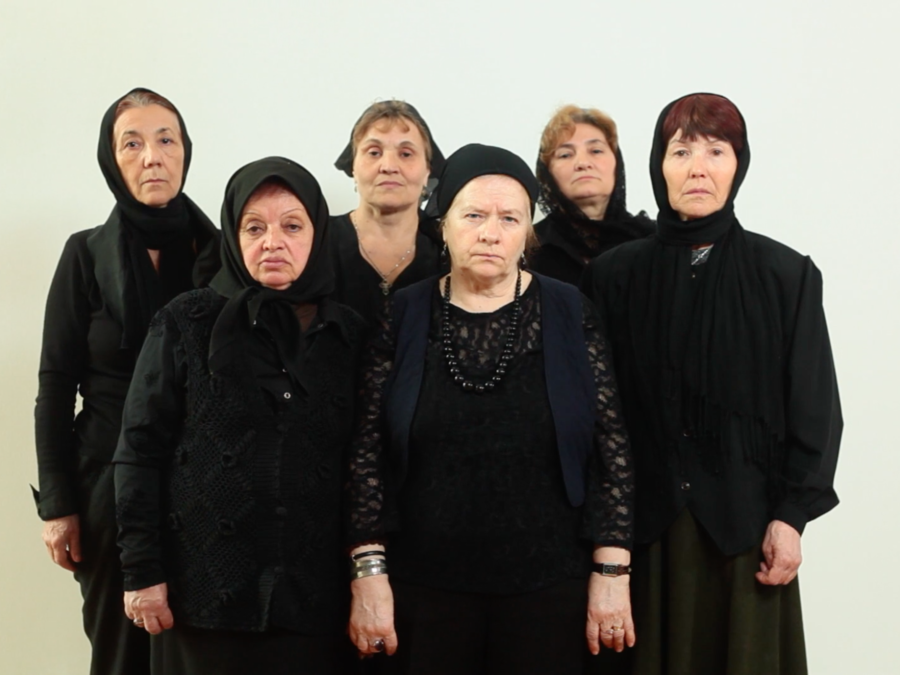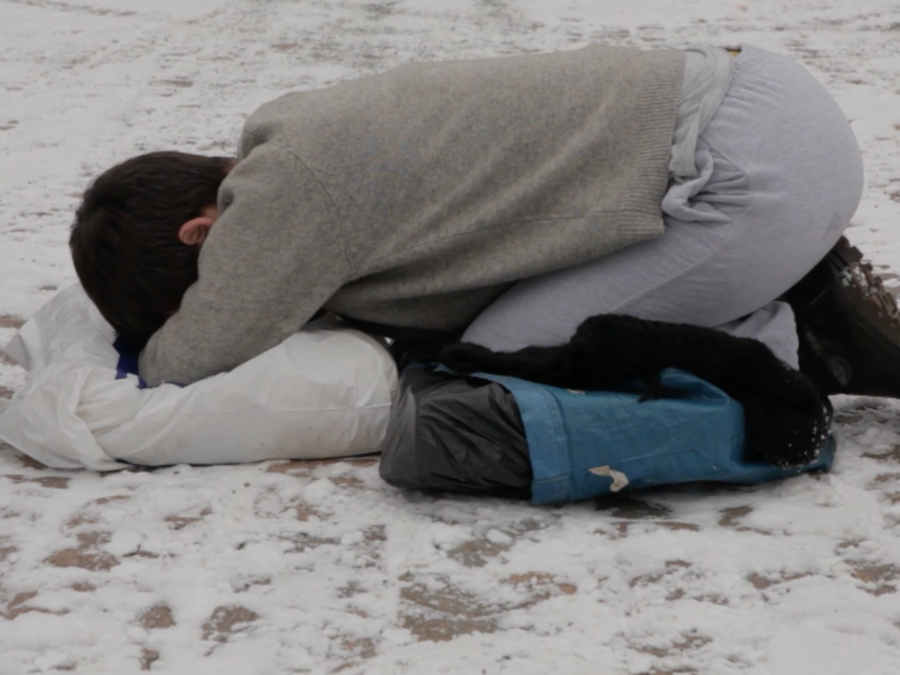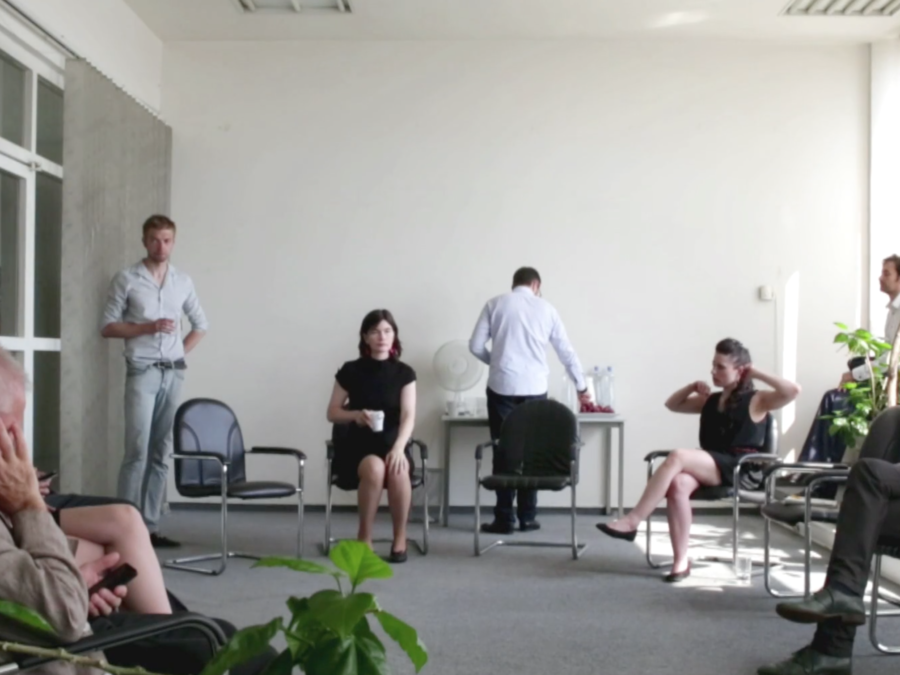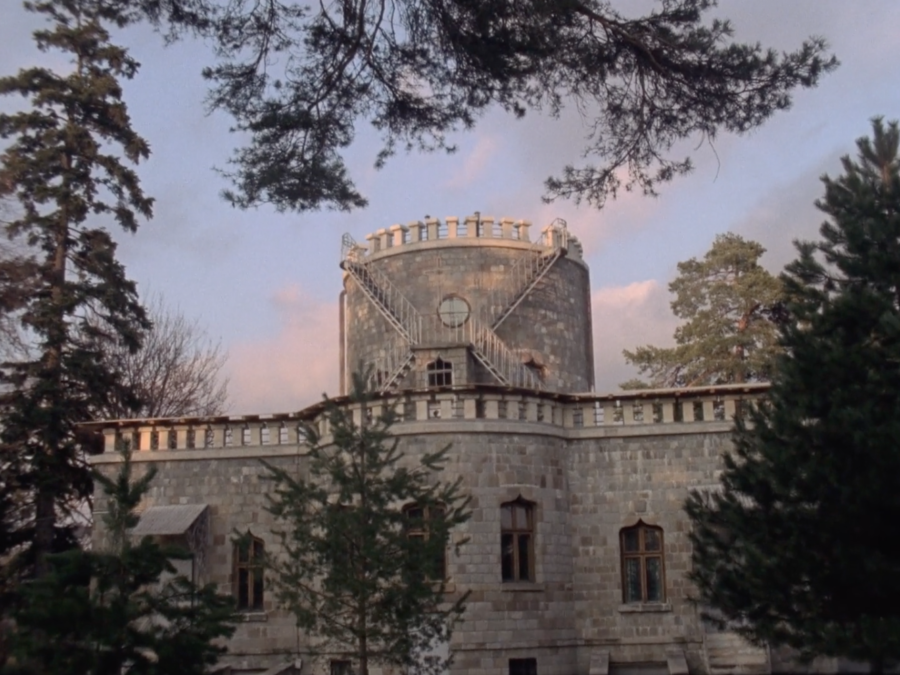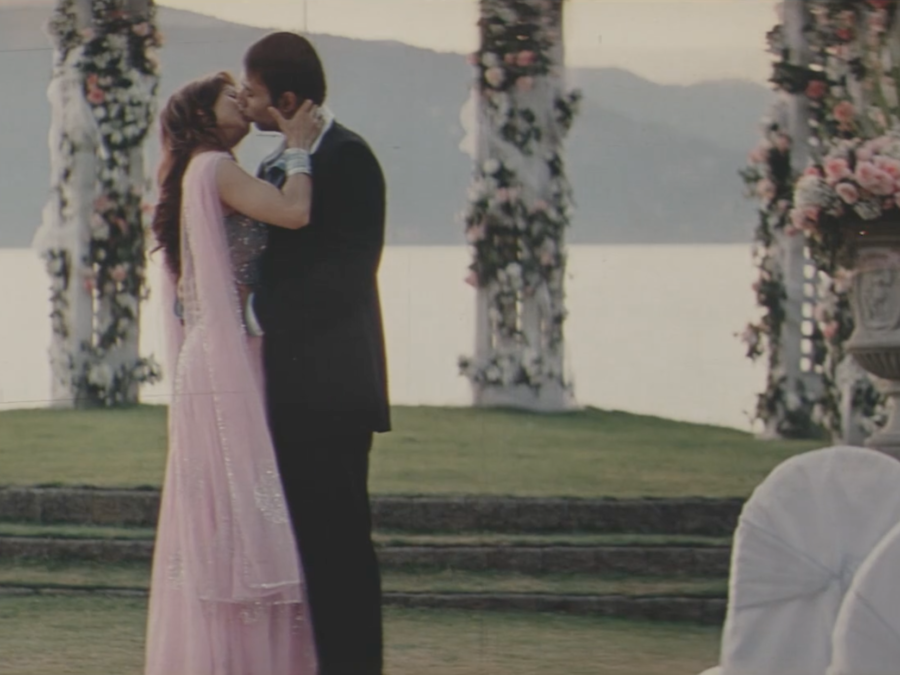“Don’t forget you are an artist! Do not lose your heart, do not be afraid of anything! You will prevail. Create like a god, command like a king, work like a slave!” This aphorism by Brancusi was inscribed on the walls of the Paintbrush Factory in Cluj-Napoca by students of the local Art and Design University. This intervention was part of a project by Alexandra Croitoru who in the last years has been researching the cult of Brancusi in Romanian culture. In contrast to the inspirational tone of the aphorism, in this piece the students became mere executants of unqualified labour who were performing the role of art’s “slaves.”
Mr. Aurică, the protagonist of Alexandra Croitoru’s film The Cabbage Process (2012), works as a craftsman in the Mural Art Department of the National University of Arts in Bucharest. But mural painting is not his only craft. Every autumn in the faculty studio, where he works alongside with the students, he prepares barrels of pickled cabbage for each teacher in the department. According to Mr. Aurică, cabbage pickling is a rare skill. Much like painting or restoring churches, it takes patience, humbleness and “purity.” Mr. Aurică, who refers to himself in the third person believes the following: “One has to be clean to do pickling. I tell these girls (female students) to stay away from to me when I’m pickling if they haven’t been clean.” And by clean Mr. Aurică means chaste. In his world, the professor and the male artist are standing on the pedestal of virtuosity, their status almost unattainable, their prerogative untouchable. Mr. Aurică constantly sermonizes his “wisdoms” to an imaginary interlocutor. In order to become a great artist one has to go through a process of maturation achieved through thoroughness and dedication. The Cabbage Process is an allegory for the persistence of art as craft and the aura of “the great male artist” in Romanian education, reaching back to Brancusi. Produced for Alexandra Croitoru’s exhibition at Galeria Plan B in Cluj, her film functions as an anti-monument of “the genius.”
Alexandra Croitoru holds a PhD from the National University of Arts in Bucharest and teaches at the Photography and Video Department of the same institution since 1999. Her PhD research, focusing on the “nationalization” of Brancusi in Romania, was the starting point for the book Brancusi. An Afterlife (IDEA Cluj & Archive Books Berlin, 2015). Since 2011 she has been a co-curator at Salonul de proiecte Bucharest and editor of its publications Dear Money (2014) and Open Calls (forthcoming). Her projects have been presented in numerous exhibitions such as Galeria Plan B, Berlin (2016), Kunsthalle Winterthur (2015), tranzit.ro, Bucharest (2015), Zachęta National Gallery of Art, Warsaw (2010), mumok Vienna (2009), Shedhalle Zürich (2009), Casino Luxembourg – Forum d’Art Contemporain (2008) and elsewhere.
